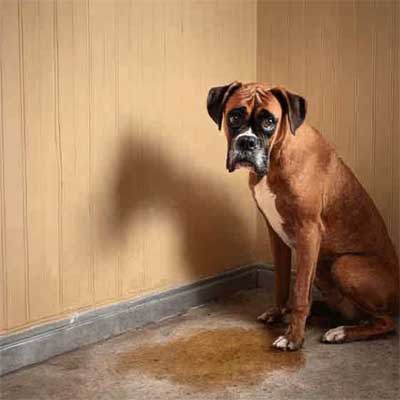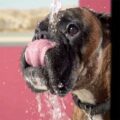Why Dogs Pee in the House: Real Reasons and How to Help
Why Dogs Pee Indoors (And What You Can Do About It)

Why dogs pee in the house is one of the most common (and frustrating) questions dog owners face. If you’ve ever come home to find a puddle on the floor or even on your favorite pillow, you might think your pup is acting out. But here’s the truth: dogs don’t pee indoors to spite you. Instead, it’s usually a sign of something important you shouldn’t ignore.
Veterinary studies confirm that inappropriate urination is often linked to medical, behavioral, or environmental factors rather than “bad behavior” (Cornell University College of Veterinary Medicine).
Let’s break down the main reasons — and what you can do to help your furry friend.
1. Health Issues Come First
Illness is the number one cause to rule out. Urinary tract infections, kidney disease, diabetes, Cushing’s disease, or even side effects of medications can cause loss of bladder control.
👉 Before training or discipline, always schedule a vet visit. According to American Veterinary Medical Association, medical treatment alone often resolves indoor accidents.
2. Age Matters: Puppies and Seniors
- Puppies: Young dogs simply don’t have full bladder control yet. They need frequent potty breaks and positive reinforcement when they get it right. Never punish — even if the “crime scene” looks dramatic.
- Senior dogs: Older pups may struggle with bladder weakness or reduced patience. More frequent walks and regular vet check-ups help.
Dog trainer Ian Dunbar famously said: “Dogs don’t make mistakes — people do. If your puppy pees indoors, you probably missed the timing.”
3. Lack of Routine or Structure
Dogs thrive on rituals. It’s not about the clock — it’s about consistency. If your dog doesn’t know when the next walk is, accidents are more likely.
Establish a clear pre-walk ritual (coffee + leash + outdoor pants = walk). Dogs love patterns, and predictable routines reduce stress-related accidents.
4. Hormonal & Sexual Behavior
Unneutered dogs may mark territory indoors, especially during mating seasons. Spaying or neutering not only reduces marking but also helps prevent hormone-related diseases, according to ASPCA.
5. Stress and Emotional Triggers
Stress is a big reason dogs pee inside. Triggers include:
- Fear of the outdoors (loud noises, storms, unfamiliar environments).
- Separation anxiety — holding it in too long while waiting for you.
- Submissive urination when feeling insecure around humans or other dogs.
Pro tip: Build positive associations. Feed your dog outdoors, play games during walks, or create calm rituals when leaving/coming home.
6. Environmental or Household Changes
A new baby, a visiting guest, moving furniture, or moving to a new house — all can trigger stress-based accidents. Even weather (storms, heavy snow, extreme heat) can discourage outdoor potty breaks.
Consistency and reassurance go a long way.
How to Help Your Dog (Without Blame)
- Never punish accidents. Dogs don’t understand scolding after the fact.
- Clean thoroughly. Use enzymatic cleaners to remove scent traces.
- Reward successes. Praise and treats make training faster.
- Consider crate training. When used correctly, crates provide a safe “den” where dogs naturally avoid accidents.
- Rule out medical issues first. Always.
Common Questions Answered
Q: Is my dog peeing indoors out of spite?
A: No. Dogs don’t plot revenge. Indoor urination is a stress signal, medical symptom, or lack of routine.
Q: Should I rub my dog’s nose in it?
A: Absolutely not. Punishment damages trust and worsens anxiety. Focus on reward-based training.
Q: Can bad weather really cause accidents?
A: Yes. Rain, snow, or extreme heat can discourage dogs from going outside. A covered potty area or indoor pee pads can help.
Q: Will neutering stop marking indoors?
A: In many cases, yes. Hormone-driven marking decreases significantly after spay/neuter surgery.
👉 Bottom line: If your dog pees indoors, it’s not misbehavior — it’s communication. Your job as a loving owner is to decode the message, rule out health issues, and support your dog with patience and consistency.

